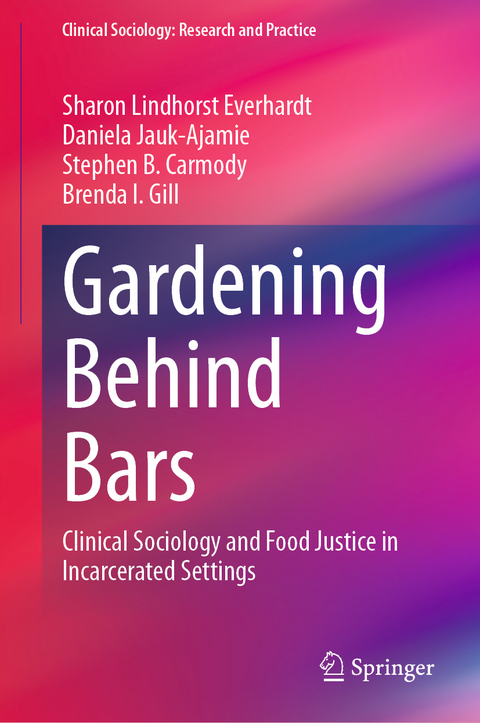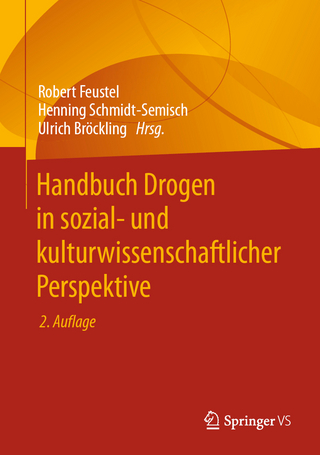
Gardening Behind Bars
Springer International Publishing (Verlag)
978-3-031-49684-4 (ISBN)
This book connects clinical sociology to the food justice movement through gardens in incarcerated settings. Situated within the larger food justice movement, the authors highlight the shortcomings of the global food system and the inequalities produced by the lack of adequate nutrition, particularly in the context of marginalized populations, such as those in carceral institutions. The book provides an up-to-date overview of horticulture programs in different incarcerated settings in the US, including prisons and community correction units, and provides in-depth discussion on innovative best-practice models. It also features a detailed analysis of an ongoing multi-site research project on gardening in incarcerated settings for women at local, state, and federal levels. Unlike other literature on prison and jail horticulture, this book contextualizes gardening in incarcerated settings with critical historical analysis, presenting the theoretical background to sociological action research projects. Serving as a starting point for establishing gardening as an evidence-based practice in prisons and jails, it is essential reading for researchers and practitioners of clinical sociology and social work, criminologists, prison and corrective institution administrators, and citizen groups interested in therapeutic gardening and alternatives to industrial prison food.
lt;b>Andria L. Blackwood, Ph.D., is an associate research scientist at the Wyoming Survey & Analysis Center at the University of Wyoming. She received her master's degree in Sociology and her PhD in Geography from Kent State University in Ohio. Her main research interests center on incarceration issues including the development and implementation of correctional programming for successful reentry, substance use disorder, and mental health. She is currently the lead evaluator of a reentry program for day reporting centers in Alabama and a Naloxone dispensing program in Arkansas. She worked as a research and grant specialist in community corrections for Oriana House Inc. from 2019-20 and was director of the horticulture program located at the community corrections facility for women. The program focused on embedding cognitive behavioral techniques to address social skills, problem solving, critical reasoning, and self-control within the directed leisure activity of gardening.
Stephen B. Carmody, Ph.D., is an anthropological archaeologist. He currently serves as an Associate Professor of Anthropology at Troy University, USA. He received his Ph.D. from the University of Tennessee, Knoxville, in anthropology with a specialization in archaeology and paleoethnobotany. His research focuses on the origins of agriculture, the origins of structural inequality, agricultural sustainability, and food justice. These themes are the focus of several recent publications including, "Agricultural Innovation and Dispersal in Eastern North America", in the Oxford Research Encyclopedia of Environmental Science; "The Context and Consequences of Sexual Harassment in Southeastern Archaeology", in Advances in Archaeological Practices; and "From the Past ... A More Sustainable Future?" in the Society for American Archaeology Archaeological Record. Stephen serves as an executive board member for the Tennessee Council of Professional Archaeologists and served on the Society for American Archaeology's Committee for Native American Relations as well as the Southeastern Archaeological Conference Sexual Harassment Committee. He currently conducts archaeological research excavations in North America and in Italy.
Sharon Lindhorst Everhardt, Ph.D., is an Associate Professor of Sociology at Troy University. She received her Ph.D. from Wayne State University in Sociology with a specialization in social inequality. Her main research interests include women from marginalized backgrounds and clinical sociology. Currently, her major projects concern poverty, food insecurity, social isolation, and community gardens in low-income areas of the Southeastern U.S. amongst marginalized populations as evidenced by recent publications, Can Gardening Help Address Food Insecurity and Social Isolation Among Older Adults? A Pilot Study in Rural Alabama in Activities, Adaptation & Aging and School Gardens: Unpacking the Potential to Reduce Food Insecurity Among Alabama's Children in Research in Political Sociology. Her previous work has focused upon women and families of color and homeownership, Meeting the Needs of Mother and Families?: Family Self-Sufficiency Programs and Goals of Homeownership in Michigan Family Review and Experiencing Race, Class, and Gender in Real Life: How Women Strive for Economic Self-sufficiency and Homeownership in Advances in Gender Research.
Brenda I. Gill, Ph.D., is a mixed-method prepared family sociologist employed at Alabama State University (ASU) as a Professor of Sociology in the Department of Criminal Justice and Social Sciences. Her scholarship includes her service on the editorial Board of The University of Guyana Press. She has been the Relationship Expert for the Alabama Prison Reentry program for the past 8 years. She received a Ph.D. in Family Sociology with a minor in Education from Wayne State University, Detroit Michigan, 2009.
1. Introduction.- Part 1: Theoretical and Historical Contexts.- 2. History of Food Justice in the U.S. and the Rockpile Program as a Food Justice.- 3. Prison and Jail Gardens: The Disturbing History of Exploitative Incarcerated Labor Initiative.- Part 2: Gardening in Incarcerated Settings Today.- 4. Therapeutic Gardening in Incarcerated Settings in the United States.- 5. Creating a Garden in a Community-Based Corrections Facility. -6. Centering Women's Voices: Findings and Implications from U.S. Midwest.- 7. Building a Prison Garden in the U.S. Southeast.- 8. Centering Women's Voices: Findings and Implications from the U.S. Southeast.- 9. Methodological and Logistical Challenges of Gardens Behind Bars.- Part 3: A Practical How-to Guide for Practitioners and Future Directions for Prison and Jail Horticultural Programs.- 10. Gardening as Clinical Sociology.- 11. Concluding Remarks.- Appendix
| Erscheinungsdatum | 16.02.2024 |
|---|---|
| Reihe/Serie | Clinical Sociology: Research and Practice |
| Co-Autor | Andrea L. Blackwood, Richard Ledet |
| Zusatzinfo | XVI, 205 p. 17 illus., 12 illus. in color. |
| Verlagsort | Cham |
| Sprache | englisch |
| Maße | 155 x 235 mm |
| Gewicht | 493 g |
| Themenwelt | Sozialwissenschaften ► Soziologie |
| Schlagworte | Clinical sociology • Community Corrections • Horticulture in Incarcerated Settings • Jails and Prisons • Mixed Methods Research • Prison and Exploitative Labor • Prison Gardens • Prison Policy |
| ISBN-10 | 3-031-49684-1 / 3031496841 |
| ISBN-13 | 978-3-031-49684-4 / 9783031496844 |
| Zustand | Neuware |
| Haben Sie eine Frage zum Produkt? |
aus dem Bereich


